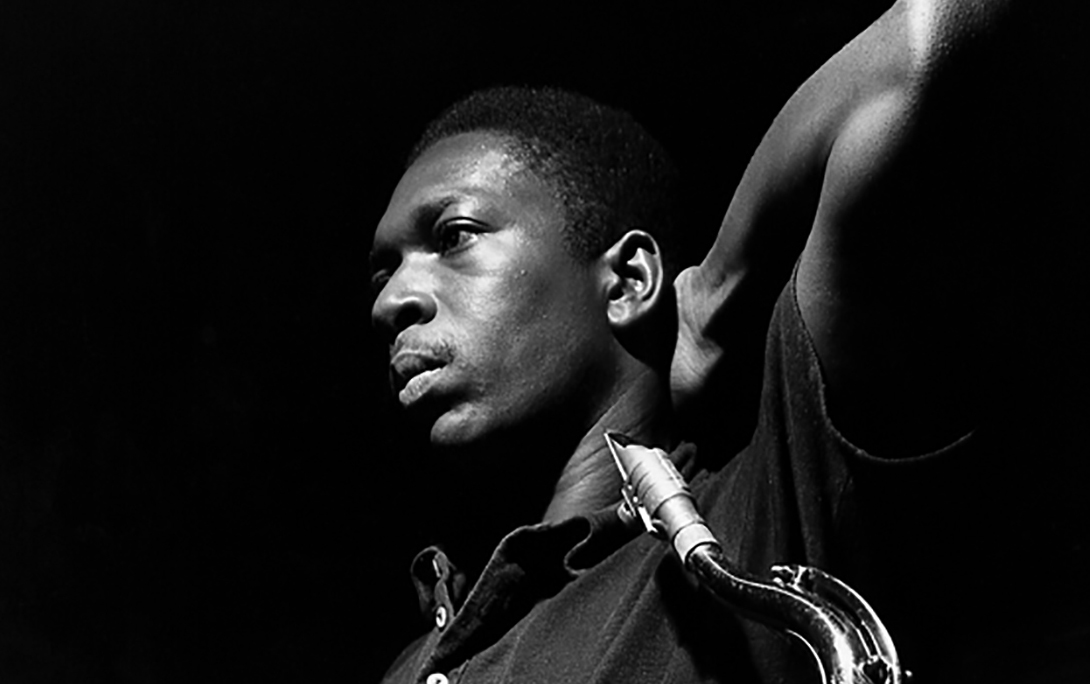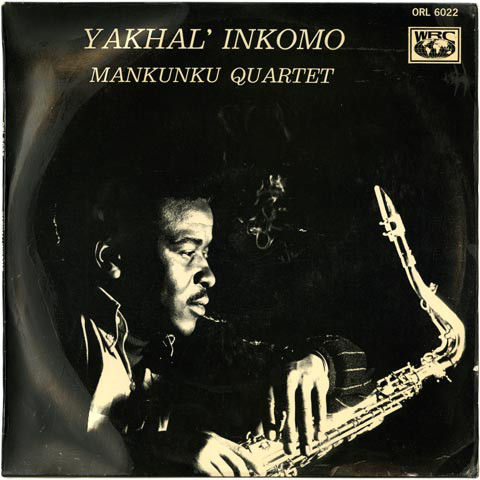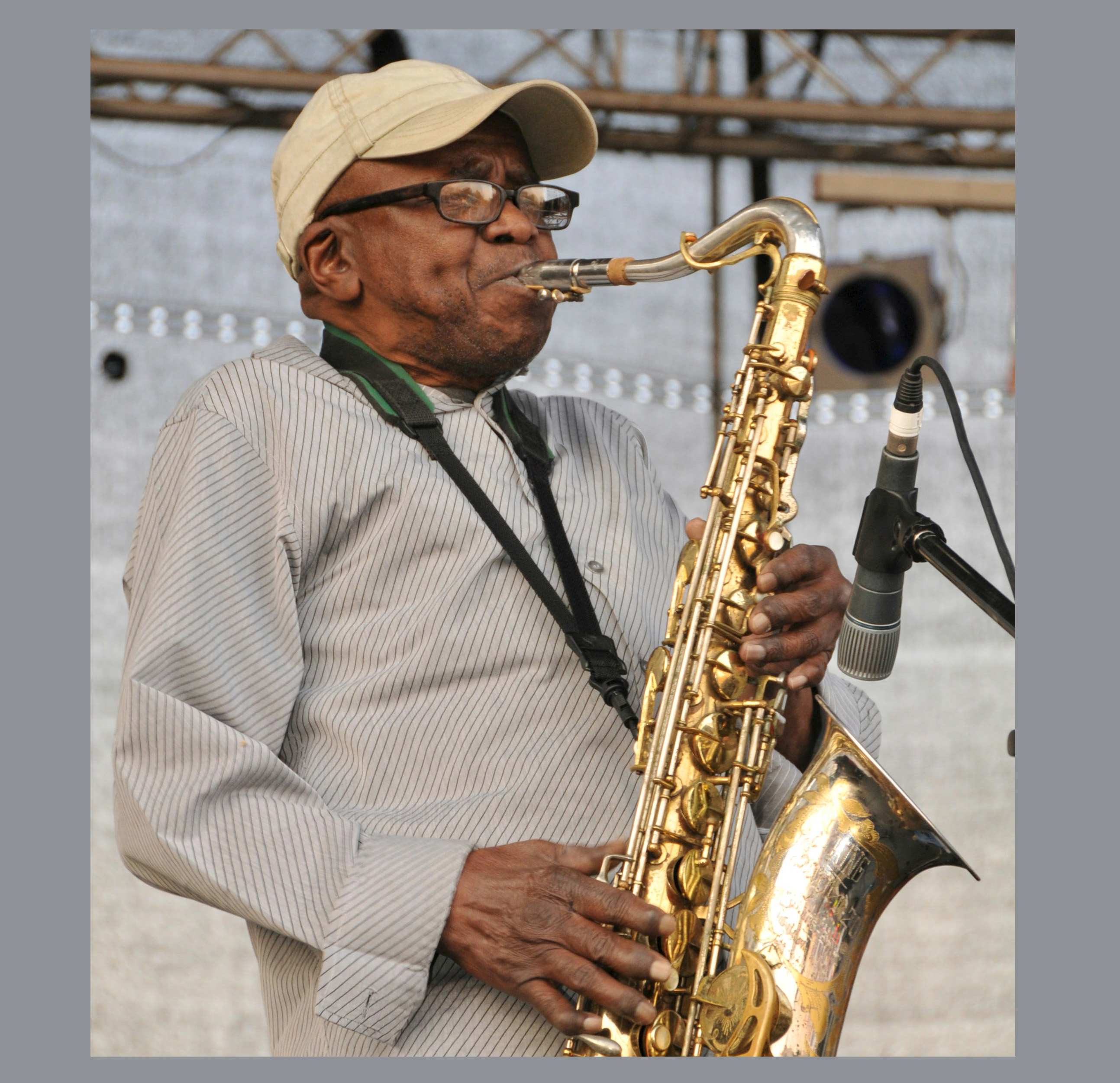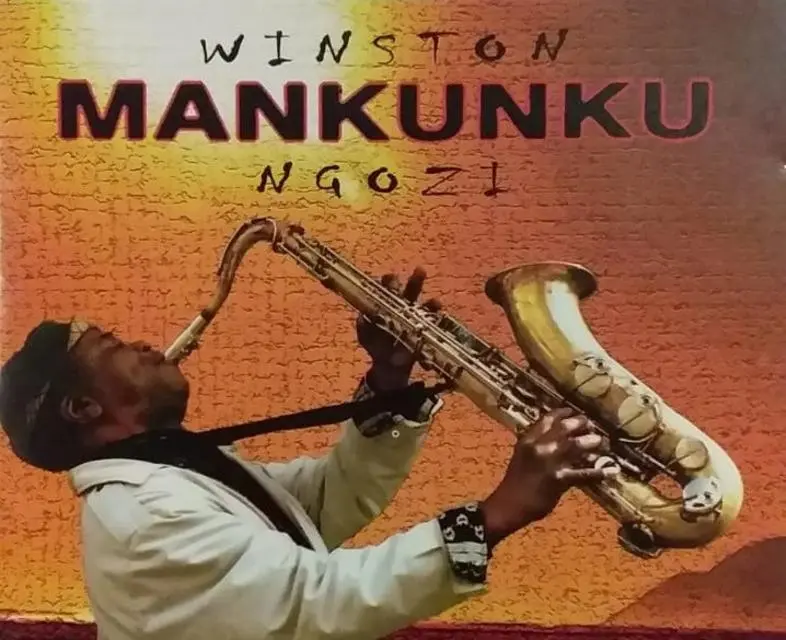Winston Monwabisi Mankunku Ngozi was the second of four children, born to a musical couple, Gertrude and Percy Ngozi in 1943. The family lived in the suburb of Retreat. He was raised listening to his mother sing gospel songs, his father’s sermons, and the choir in the church each Sunday. During the week he snuck into the neighbour’s house to play piano, recreating the tunes he had heard both in church and in his house.
The family were forcibly removed from their home in Retreat in 1963 to the township of Gugulethu. At the time, Winston was 20-years-old. Here he was introduced to his mentor, Christopher Columbus Ngcukana, as well as Cups Nkanuka. It was Bra Cups Nkanuka who visited Mama Ngozi several times in 1963 to ask her to lend young Winston to him to go to the Castle Lager Jazz Festival at Orlando Stadium in Johannesburg. “I need a trumpeter in my band,” he pleaded.
Shortly after his return from Johannesburg, Winston changed instruments. From 1964 onwards, Winston Mankunku Ngozi was listed as a saxophonist. He had no formal music training and could not read music. He listened to the radio and taught himself to play one of the most difficult and celebrated John Coltrane compositions, Giant Steps. At the same time, the young Winston started to mingle with a large and vibrant group of jazz musicians who played at various venues around Cape Town. He played with Ebrahim Kalil Shihab, Selwyn Lissack, Midge Pike, Merton Barrow, Dave Galloway, Monty Weber, Dudu Pukwana, Cliffie and Basil Moses, Dennis Mphale, Tete Mbambisa, Max Dayimani, Ronnie Beer, Philly Schilder, Bob Tizzard, Maurice Gawronsky, Morris Goldberg and Tony Schilder.
In 1968 at age 24, Winston’s fame achieved national status when he released his debut album entitled Yakhal’ Inkomo, roughly translated as “bellowing bull”. In the same year, he was voted Musician of the Year at the Black Label Jazz Festival. Mankunku became a household name and Winston was now in demand outside of the music industry. He appeared in adverts for clothing, featured in Drum magazine and was played on just about every turntable in South Africa except the South African Broadcasting Corporation (SABC), who only played tribal music on its designated black radio stations.
Outside of the mainstream white-dominated radio and newsprint, Mankunku was news. With his snappy dress style, he became the essence of cool, capturing both style, upward mobility and by giving musical expression to the anger of the oppressed through his music, he captured the spirit of resistance in a post-Sharpeville period.
Read more in Daily Maverick: Kesivan Naidoo and the jazzy big band that marches to the triumphant beat of his commanding drum
A year later Winston collaborated with the Chris Schilder Quintet to produce the now ever-popular album called Springtime in the Cape. Ironically, at the very time when Winston was enjoying his greatest success, he was also bitter. Yakhal Inkomo was the top selling jazz album in South Africa. In five years, it sold more than 100,000 copies. Today it is still one of the most popular jazz albums in South Africa, and in 2023 – and an original release from 1968 – sold for R24,000 on auction.
No reward
Winston received no reward for his compositions. Teal Records retained the publishing rights. When in 1974 Winston confronted Teal Records, he was told all the sales records were destroyed in a fire and that no compensation was possible. Teal was eventually sold to Gallo, who still owns the publishing rights.
Winston’s disillusionment with the music industry was aggravated by an omnipotent state that closed virtually every opportunity for a black musician to earn a living. Several musicians left South Africa to pursue their careers overseas, finding it difficult to practise their craft in a repressive environment. Winston chose to stay in South Africa. Most musicians found alternative jobs and music became a hobby that you practised at home, mainly jamming with friends and listening to LPs. He recalls that “in the 1970s, work was scarce, we had to tour all the time. I spent my time listening to classical music. We were not seen”.
In 1975, a new upbeat LP was released called Alex Express. It featured The Cliffs with Stompie Manana and George Tyefumani on trumpets; Roger Khoza on organ; Allen Kwela on guitar, bass; Philip Kiti and Peter Jackson on drums. It was Winston’s first time in the studio after six years. All the tracks on the LP are his compositions. Following on from the popularity of Alex Express, he collaborated with Mike Makhalemele to produce The Bull and the Lion in 1976. The title of the LP was a reference to the bellowing bull on Yakhal Inkomo and Mike’s stage name “ratau” (lion). In 1977, Winston appeared on Sammy Hartman’s, Remembering District Six. Here he played with Lionel Beukes, Monty Weber, Basil “Mannenberg” Coetzee and Errol Dyer. As a victim of forced removals himself, and having regularly performed in the Zambezi Restaurant located in District Six, Winston would have been very familiar with the various musical styles and traditions emanating from District Six.
It was also around this time that Winston met Mike Perry, a young pianist who he took under his wing and mentored. Together they played various functions and gigs, and over time laid the foundation for what would prove to be the longest and most productive partnership. In addition to gigging with Perry, Winston appeared at several “struggle concerts” around South Africa. Musicians were in demand for fundraising events and cultural festivals.
 Blue Train by John Coltrane. (Photo: Francis Wolf.)
Blue Train by John Coltrane. (Photo: Francis Wolf.)
Free contributions to the struggle
On most occasions, they were expected to play for free, as part of the collective conscientising process, or as their contribution to the struggle. Musicians struggled to make a living as they divided their time between supporting the struggle and earning a living. It was also a time when Winston first started to mention that he was having difficulties with breathing. He went to see a doctor, who diagnosed a problem with one of his lungs.
In 1985, the doctor suggested that he stop playing music or take a very long break. Winston decided to recover at his mother’s house in Gugulethu, where the only instrument he had available was an old accordion given to him by Roger Khoza. He started preparing for a new album. In 1986, he and Mike travelled to London to record Jika, along with exiled musicians Bheki Mseleku and Russell Herman. He returned to South Africa and immediately embarked on a sellout tour to promote the new album.
After Jika it would take another 10 years before Winston produced another album. Over the next few years, he spent much of his time between Gqeberha, Durban and Johannesburg. He spent several months in Durban with Darius Brubeck, with regular performances at the popular Rainbow Club. In Johannesburg, he and protégé Duke Makasi debated John Coltrane for hours, playing the saxophone to demonstrate Coltrane’s technique rather than using words.
In 1997, he released Dudula. An upbeat album that celebrated our new democracy with songs like Let Go, Forward, Water of Life and Green and Gold. Soon after Dudula he released the amazing Molo Africa in 1999. The songs are celebratory, pensive, inquiring and giving praise. Winston’s ability to combine traditional jazz, gospel and township rhythms that speak directly to people’s fears, anxieties and joyous feelings at the time of the second democratic election, is clearly present on this album. Abantwana be Afrika was released in April 2003, and expressed his love for the African continent, calling for unity among people all over the African continent.
From 2004 onwards, Winston was not feeling well. He was suffering from high blood pressure and arthritis. He decided to self-medicate, using a combination of traditional and over-the-counter medicines. He did not have medical aid and could not afford a cardiologist. Over this period, he was playing less and often cancelling appearances due to poor health. The royalty income that he had hoped to live off was meagre and paid once a year in December.
In September 2009, he suffered a heart attack. Nine days later he was discharged with an instruction to rest. He was admitted to a frail care facility to recover. Unfortunately, his condition worsened, and he was admitted to Victoria Hospital in Wynberg, where he passed away on 13 October 2009.
 Yakhal’ Inkomo by South African jazz legend Winston 'Mankunku' Ngozi. (Image: supplied)
Yakhal’ Inkomo by South African jazz legend Winston 'Mankunku' Ngozi. (Image: supplied)
Ceremony in Gugulethu
The family first held a traditional ceremony called Izila at his mother’s house in Gugulethu. The funeral itself was attended by more than five hundred people. Just further down the road at Gugulethu Sports Centre, a concert was held in his honour. Winston’s closest friends Feya Faku, Tete Mbambisa, Spencer Mbadu and several other musicians played Winston’s compositions as a final tribute to a man who over five decades was able to capture the mood and pulse of South Africa in music without ever learning how to put a note on a staff.
On 21 June 2023, Winston would have celebrated his eightieth birthday. To celebrate the life of Winston and his music, a concert will be held on Sunday, 12 November 2023 at the Homecoming Theatre in District Six. Five musicians, Feya Faku (trumpet), George Werner (piano), Khaya Mahlangu (saxophone), Joshua Klein (drums) and Wesley Rustine (bass) will play compositions directly from Bra Winston’s songbook. Feya, Khaya and George have toured with Winston, played on his albums and were lifelong friends. Join us as we reunite old friends, fans and jazz enthusiasts to remember, celebrate and pay tribute to the man from GU-GU-LETHU. DM
This piece was commissioned and shared by the Winston Mankunku Ngozi Jazz Foundation.




 Yakhal’ Inkomo by South African jazz legend Winston 'Mankunku' Ngozi. (Image: supplied)
Yakhal’ Inkomo by South African jazz legend Winston 'Mankunku' Ngozi. (Image: supplied) 